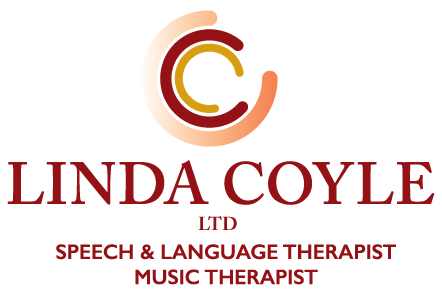It was proving to be quite a civilised dinner, food was being eaten and children were chatting…
and listening…a model conversational meal…
Our three year old said, “You and Daddy bwain.”
“Playing?” I asked.
“No, bwain.”
“Brain?”
“No bwain.”
OK, so now time to pull out some more highly effective strategies.
“I don’t understand you, tell me something else.”
“MAMMY BWAIN”
“Oh ok,” now hoping that she would forget, and we could move on from this, and I could continue with my dinner..
“No you’re not listening. MAMMY BWAIN.” This was said loudly, with a somewhat patronising look which conveyed, ‘You’re not the smartest tack in the box are you’ (nothing like a child to put you in your place!)
Right, time for a change of tack. “OK, I’m not sure what you mean…will you show me.”
“Playing?” I asked.
“No, bwain.”
“Brain?”
“No bwain.”
OK, so now time to pull out some more highly effective strategies.
“I don’t understand you, tell me something else.”
“MAMMY BWAIN”
“Oh ok,” now hoping that she would forget, and we could move on from this, and I could continue with my dinner..
“No you’re not listening. MAMMY BWAIN.” This was said loudly, with a somewhat patronising look which conveyed, ‘You’re not the smartest tack in the box are you’ (nothing like a child to put you in your place!)
Right, time for a change of tack. “OK, I’m not sure what you mean…will you show me.”
This seemed to be a good move, as with that she jumped off her chair and proceeded to….do a fancy dance move. Then got back on the chair and said, “BWAIN.”
One final attempt at, “show me” resulted in her making shadow images at the glass door of the oven, and eventually she side tracked herself from the discussion, rendering me off the hook. (1 point relieved parent, 0 points successful speech and language therapist)Well, while it serves as a reminder that you can’t be a therapist to your child, these strategies can often be effective, but the above example proves that sometimes, no matter what you do, you just don’t get it. However, while not fool proof, below are some strategies that you can use when you don’t understand a child’s speech:
One final attempt at, “show me” resulted in her making shadow images at the glass door of the oven, and eventually she side tracked herself from the discussion, rendering me off the hook. (1 point relieved parent, 0 points successful speech and language therapist)Well, while it serves as a reminder that you can’t be a therapist to your child, these strategies can often be effective, but the above example proves that sometimes, no matter what you do, you just don’t get it. However, while not fool proof, below are some strategies that you can use when you don’t understand a child’s speech:
How to respond to a child who is difficult to understand
- Get down to your child’s level.
- Use eye contact.
- Try to give your child your full attention. If this is not possible, say that you’ll talk to them in a minute (and remember to come back to them!).
- If possible, go somewhere quiet where there is minimal background noise.
- Listen carefully to what your child is saying as you may be able to pick up on a key word.
- Say back a word or phrase that you think s/he said. This shows that you are really listening to your child.
- Acknowledge when you don’t understand. Some things you can say, “I’m not sure what you said, can you tell me again?” or “Sometimes Mammy doesn’t understand what you’re saying, I’ll try harder.”
- Children are harder to understand when they’re talking about something that is not in front of them. Try to establish what the topic is, for example, “Are you talking about the park?”
- Ask your child to show you.
- Try not to give a general response, such as, “yes,” or “did you?” Children often know when they’re not being understood. You may also be agreeing to something that you hadn’t meant to agree to!
- Try not to talk for the child and discourage others from talking for the child.
Article featured in February 2014 edition of Connected Communication. Click here to subscribe.

